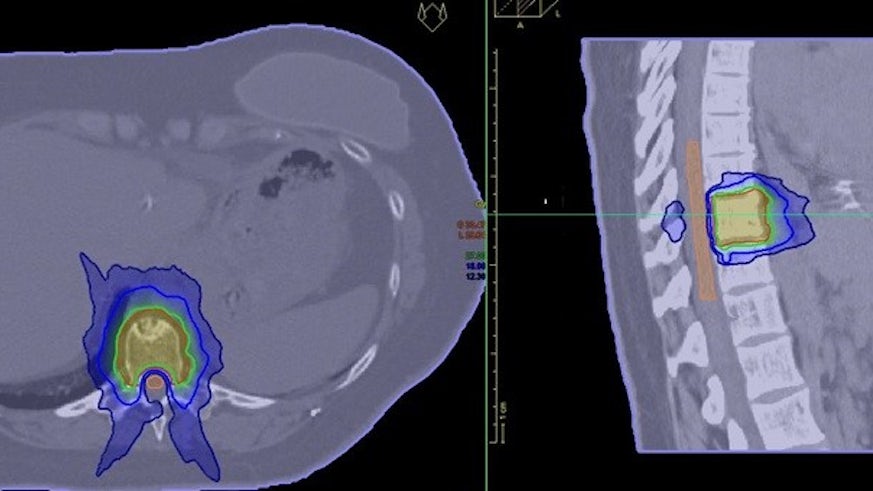Targeting BCL3 to treat prostate cancer
28 September 2023

New funding will help Cardiff University researchers further potential treatments for prostate cancer, through the first drug to target the BLC3 cell signalling pathway.
Prostate Cancer UK have awarded £0.5 million to prostate cancer research at the European Cancer Stem Cell Research Institute at Cardiff University, funding the investigation of the potential for a new drug for future cancer therapies.
The grant will fund investigations into targeting the BCL3 cell signalling pathway, a signal given off by cancer cells to trigger growth, which contributes to development of cancers. The researchers have developed the first ever drug that targets this pathway and aim to test the effectiveness of this potential future prostate cancer treatment.
Dr Helen Pearson, Senior Lecturer in Prostate Cancer at the School of Biosciences, said: “In aggressive prostate cancer, the BCL3 signalling pathway is often over-active, leading to the development of tumours.”

“We have developed this new drug to therapeutically target BCL3, and it has passed initial safety tests and has already shown promise in treating colorectal cancer. This funding will allow us to investigate whether this drug could also treat prostate and to gain new insights into which stage and type of prostate cancer might benefit."
The researchers believe that this project will give them the information they need to take their potential treatment into a clinical trial.
To determine the effectiveness of treatment with the new therapy, the researchers will treat a range of laboratory preparations that closely imitate human prostate cancer with the new drug. The laboratory preparations will mimic different disease stages and types of prostate cancer, including cancer localised within the prostate, cancer resistant to hormone therapy or cancer has already spread around the body.
“Aggressive prostate cancer is more likely to spread, it is much harder to cure and more dangerous to the men who have it. If this research is successful, it could lead to a new way to treat aggressive disease, and give these men longer, healthier lives.
“We hope that studying how these cancer growth signals work will lead to a better understanding of how prostate cancer spreads, making it possible to find other potential treatments for aggressive disease, and to develop blood tests that could tell doctors which men would benefit from these treatments,” added Professor Richard Clarkson, Director European Cancer Stem Cell Research Institute.
Simon Grieveson, Assistant Director of Research at Prostate Cancer UK, said: “For 1 in every 5 men diagnosed with prostate cancer in Wales, their cancer is found at an advanced stage that’s too late to be cured. That is why it’s so important for us to support research into new targeted, personalised treatments that can keep the cancer under control for longer.
“Over the past three years, Prostate Cancer UK has invested more than £1.1 million into cutting edge research across Wales, to find new ways to detect and treat the disease.
“We’re extremely excited to be supporting Dr Pearson, Professor Clarkson and their team at Cardiff University, whose research will not only give us vital insight into the mechanics of how some aggressive cancers spread, but will also test a brand new treatment for prostate cancer in the lab. We hope this research will pave the way towards future clinical trials for this promising treatment which could help men with prostate cancer live longer, better lives.”



